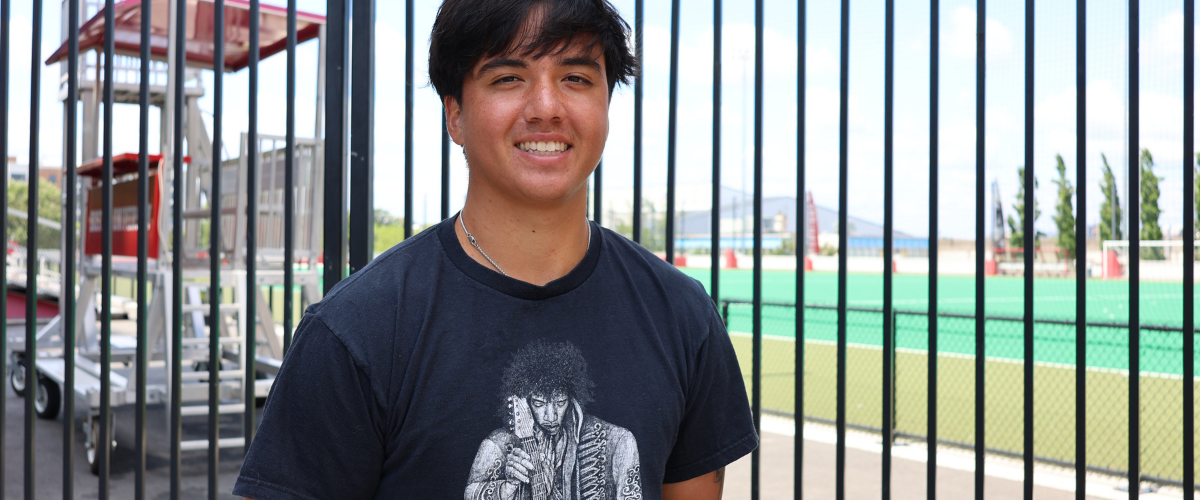Jakob Esterowitz (ENG’27)
Founder & CEO, Orobor | Major: Mechanical Engineering, Concentration: Technology Innovation

Founder & CEO, Orobor
About
Two things have always been a big part of my life: tennis and fashion. Whenever I couldn’t be on the court—during injuries or the pandemic—I’d shift my focus to fashion. I transferred to BU to play for the Division 1 tennis team while studying mechanical engineering. Soon after I got to college, I launched my own clothing brand. As I began manufacturing overseas, I got a lot of questions about where my materials were coming from. That got me thinking more critically about clothing production and its environmental impact. I also learned that the fashion industry accounts for nearly 10% of global carbon emissions, which really stuck with me.
BU Highlights
At BU, I started looking for ways to create clothing using materials already in my life. Around the same time, I noticed how much used tennis string was piling up in BU’s stringing room. I thought - why not turn that waste into fabric? That’s where the idea for Orobor began. We collect discarded tennis strings and recycle them into polyester yarn for clothing manufacturing. By closing the loop between the end of a tennis string’s life cycle and the beginning of a garment’s, we help prevent trillions of microplastics from polluting our water sources and reduce CO₂ emissions from polyester production.
We’ve been conducting extensive market research to finalize our first fabric and prototype fibers, making sure they meet the quality standards apparel brands require. We are collecting string at around 3,500 locations across the U.S., Czech Republic, and U.K. - and we’re continuing to expand. We’ve partnered with tennis nonprofits, some of which already recycle tennis balls, and now working with them to take on string waste as well. People from Europe and South America have also reached out, wanting to start collection programs in their own countries. So, we’ve launched an ambassador program, where individuals gather string in their communities, both in the U.S. and abroad.
The Sustainability Innovation Seed Grant was really the moment Orobor was brought to life. It provided us with our first source of capital and connected me to a community of students and faculty equally passionate about making BU’s campus greener. This pushed me to drive my own idea forward and helped me hone in on the vision for Orobor. We also participated in Innovate@BU’s New Venture Competition, which was an amazing experience. I’d never presented in front of so many people, and it was a fun way to get our idea out there. I went through the Innovation Pathway and completed the walk, run, and fly stages, which really helped us refine our strategy and build meaningful connections. I’m also part of the Summer Accelerator - they have given us a stipend to work on Orobor full-time, and we’re learning a lot from guest speakers and collaborating with other student founders in the program.
Excitement
One thing I’d be really excited to see at BU is a student-run flea market at the end of each semester. The Goodwill donation bins are a great initiative, and a flea market could build on this and make the process more engaging. Instead of dropping things off and not knowing where they end up, students can swap or sell their stuff, find new homes for their belongings, and connect with each other in the process.
Advice for BU Students
Just start by talking to people. It can feel intimidating at first, especially if you don’t know anyone, but don’t be afraid to reach out - whether it’s to professors or people working on cool projects. Even if only one out of a hundred people replies, that one connection could open the door to an incredible opportunity.
Also, focus on things you genuinely enjoy. Sustainability touches nearly every field now, so whether you’re into food, fashion, or tech, there’s a place for you to make an impact. You’ll be more passionate and motivated if you’re working on something you love.